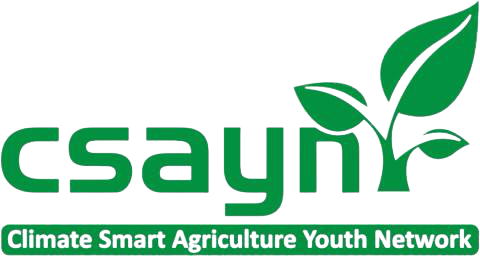2 FEBRUARY, 2016
In the margins of the Means of Implementation of Agenda 2030 towards rolling out the SDGs in January 1st 2016, the Climate-Smart Agriculture Youth Network (CSAYN) Global Coordination Unit (GCU) is organising the Launch Event of the African Youth SDGs Training Program (AYSDGT) in collaboration with the United Nations Information Centre of UN Department Public Information (DPI), World We Want (WWW), Association des Femmes pour la Paix et Encadrement des Famille (AFPEFAM), Soughtout Cameroon (SOC), Environmental Protection and Development (EPDA Cameroon) and Collectif des OSC pour la Sécurité Alimentaire et le Développement Rural (COSADER).
Purpose:
To come up with proposals for mainstreaming youths in the implementation of the SDGs in local languages and to develop the road map for the implementation of 2030 Agenda for Sustainable Development by all UN Member States.
WHAT:
A launch event of the African Youth Sustainable Development Goals (SDGs) Training Program on the theme “Mainstreaming Youth in the Implementation of the SDGs”.
From the document:
http://www.un.org/en/zerohunger/pdfs/15-19891-E-EOSG-Climate-Summit-2014%20final.pdf
Mainstreaming Youth and Persons Living with Disabilities in Climate Smart Agriculture
Climate Smart Alliance Youth Group (CSAYN): Current partners:
- CANA (the Climate and Agriculture Network for Africa)
- the Scaling Up Nutrition Civil Society Network (SUN CSN) and
- farmingfirst.org
Announcement
The main objective of the project is to create awareness, sensitize and build capacity in young people and persons living with disabilities on climate-smart agriculture concepts to increase food production. It will visits to colleges, young farmers and youth clubs, organize media talks, TV shows, presentations and seminars on climate-smart agriculture and organize site visits, drawing competitions, essay competitions related to climate-smart agriculture. This is a new initiative to promote and enhance youth and people living with disabilities mobilization and advocacy in ensuring no one is left behind before, during and after the summit.
Targets and Milestones
To educate and train as many young people as possible in the smallholder farming community, including people with disabilities, regarding the various climate-smart agricultural techniques and technologies, to support the goals of the Zero Hunger Challenge (ZHC). The first milestone was creating several local and active country chapters of CSAYN, which have launched activities in four African countries and having prelaunch organizing meeting and the first climate-smart farmer-to-farmer field school event in Canada. The next milestone included connecting with existing organizations in Africa and globally, such as CANA, which will be the official CSAYN website host; the Scaling Up Nutrition Civil Society Network (SUN CSN); and farmingfirst.org, which will post information about CSAYN events and activities and provide CSAYN with key information about its own network member events and activities. CSAYN’s next milestone will be to coordinate a series of climate-smart farmer-to-farmer field school events across all active CSAYN country chapters, as well as defining and developing a series of guidance documents for all the CSAYN country chapters to provide them with a framework for interaction with the CSAYN-GCU and other organizations.
Progress Review
Baseline
The baseline was to launch CSAYN activities by January 2015, which was achieved.
Current Status
CSAYN has launched activities in Togo, DRC, Cameroon and Nigeria. Plans are under way in Canada for the official launch in October. CSAYN is one the leading and most active youth groups recognized by the Global Alliance for Climate Smart Agriculture (GACSA). CSAYN is collaborating with CANA, SUNCSN and farmingfirst.org. CSAYN has also signed the ZHC and looks forward to its implementation. CSAYN has engaged with the UN Water for Life Decade to assist in scaling up the water, sanitation and hygiene (WASH) programme. CSAYN was invited to present during the Global forum for Innovations in August 2015 in Abu Dhabi. CSAYN is also translating the 17 Sustainable Development Goals into vernacular languages that are relevant within all of the CSAYN chapter countries. CSAYN was sponsored by the African Forum for Agricultural Advisory Services (AFAAS) to participate as a panellist in the Third UN Financing for Development conference in Addis Ababa.
Expectations for the Future
CSAYN anticipates becoming one of the official implementing partners of the Sustainable Development Goals, working with organizations such as SuSanA and educational organizations, on programmes focusing on SDG 2, Zero Hunger. CSAYN considers all its activities can easily be scaled up as the focus is to work from the ground up, directly with communities and youth, including farmers, to train them on climate-smart techniques, technologies and programmes.
Geographic Coverage
CSAYN has expanded its activities into four key African countries—Cameroon, DRC, Nigeria and Togo—and had a pre-launch organizing meeting in Canada. CSAYN is also in the process of discussing the organization of various other country chapters.
Capacity to Deliver
Implementation strategy includes focusing on
1) the Climate Smart Farmer-to-Farmer field school events across all active CSAYN country chapters and
2) defining and developing a series of guidance documents for all of the CSAYN country chapters to provide them with a framework for interaction with the CSAYN-GCU (Global Coordination Unit) and the various other organizations, including government and institutional and civil society organizations in each respective country that they will be interacting with.
Governance structure of CSAYN currently consists of the CSAYN-GCU.
Monitoring
The monitoring process has been announced via e-mail with colleagues. CSAYN has plans in place to eventually put a monitoring and evaluation framework in place, but CSAYN may require some funding assistance in order to implement a sufficiently rigorous monitoring and evaluation framework for the global network. The specific structures and mechanisms for monitoring the activities of the CSAYN network have not yet been fully defined, and CSAYN’s commitment has not yet been logged with NAZCA.
Contact: Mr. Divine Ntiokam ntiokam2@gmail.com
